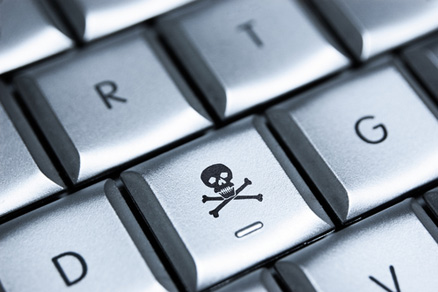
The surge in Internet use, digital content, downloads and streaming is putting pressure on intellectual property and threatens the stability of markets for digital content, the UK Government's IP Crime Report for 2015/2016 reveals.
Published by the Intellectual Property Office, in conjunction with the IP Crime Group, the report noted the scope of IP crime.
Twenty-eight percent of people surveyed over a three month period claimed they downloaded music from illegal sources, with 23 per cent for films, 22 per cent for software, 16 per cent for TV and 15 per cent for games.
Sixty-two percent of internet users over the age of 12 consumed at least one item of online content – legally or illegally – over the three month period March to May 2015, with 42 per cent downloading content and 57 per cent streaming content, the report said.
However, while illegal music downloads had decreased since 2013 (157 million to 96 million) other forms of illegal content and downloads had risen, the report said. Notably TV programme downloads, which had increase 33 per cent between 2013 and 2015.
The report noted there was increasingly easy access to pirated digital content, such as the proliferation of Internet Protocol TV (IPTV), TV delivered via the internet rather than terrestrial, satellite or cable television formats.
The growth of e-commerce sights is also having a significant impact on intellectual property. Between January 2015 and March 2016, Google and Bing received 100 million URL submissions for the removal of links to infringing content, the report said. Meanwhile, 84 per cent of online market place takedowns relate to Amazon or eBay listed sites, according to Trademark and Rights Holders Against Piracy, the report quoted.
"Piracy and counterfeiting do not occur through exclusively illegal sites on the dark web. The use of widely available and trusted platforms like Facebook, eBay, Amazon and trusted brands like Google, in association with the promotion and distribution of pirate/counterfeit products, means that collaboration between brand owners and enforcement groups is crucial," the report said.
Baroness Neville-Rolfe, minister of state and minister for intellectual property, said there was "relentless infringement on an enormous scale" but authorities were responding to the threat. "The use of social media to sell counterfeits and share pirated content illustrates the way IP criminals will adapt their business models to reach new markets. To counter this we need to continue to keep pace with these criminals by developing innovative ways to address IP crime… Progress is being made, but there is no doubt that challenges remain."
Some of the successes through the establishment of the Police Intellectual Property Crime Unit noted in the report include: 79 investigations; 69 individuals arrested for fraud, copyright, counterfeiting and cyber-enabled offences; more than 1000 websites identified for providing illegal access to films, music, TV, books, and games; the removal of more than 11,000 websites selling fake and potentially dangerous counterfeit goods.
The report said: "A balance must be struck between action against IP criminals and a continual raising of awareness, engaging the wider public, offering positive messages concerning the value of IP and the destructive impacts of IP crime."
This is the 11th IP Crime Report, which aims to highlight the actions taken to tackle IP crime. In May, the government launched 'IP Enforcement 2020', its IP enforcement strategy for the next four years.
©
SecuringIndustry.com





